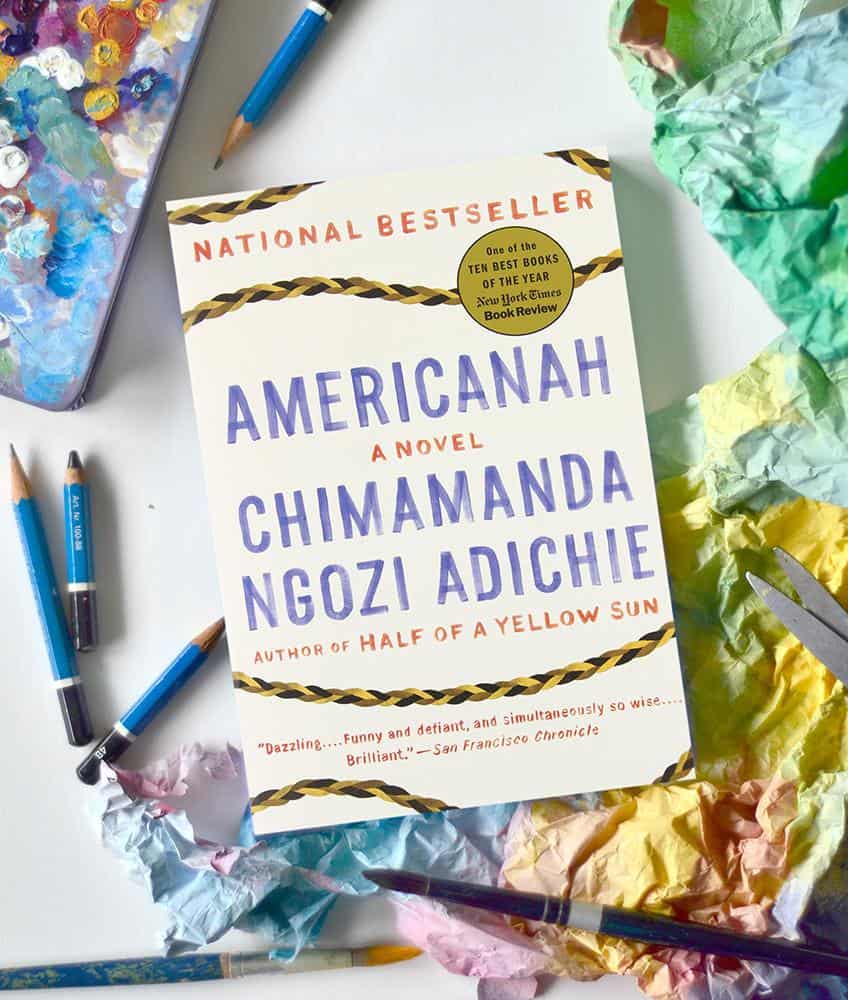Five Times Chimamanda Defined The Present
Let's celebrate a woman telling the story of a generation as she turns 40.
Let's celebrate a woman telling the story of a generation as she turns 40.
It is beyond amazing to think that nearly 20 years after Chimamanda Ngozi Adichie began her journey as a writer, she is Nigeria’s foremost 21st century writer and one of the most prominent voices in feminism today. As she turns 40 she is still regarded with a sort of ambivalence by many within and outside Nigeria. Many consider her work stellar but are conflicted by her personal politics.
One thing everyone is in agreement about is Adichie’s outsize impact on women here. Her fierce female protagonists have made a larger part of them reconsider a lot about Feminism. It’s difficult to not narrow all her achievements down to just that. Lets celebrate her with some of the memorable moments that got us revelling in her work and success.
We Should All Be Feminists TEDx Talk
Here, she details her views on gender construction and sexuality. One of her most easily remembered lines is when she says the problem with gender is it shapes who we are. “Feminist, a person who believes in the social, political and economic equality of the sexes”, she says. Her essay, We Should All Be Feminists is adapted from the talk and has remained on bestseller lists too. The 2013 Ted Talk has spun into many must reads, must hear and must wear (i’ll get there in the following list).
Chimamanda and Beyonce, Flawless
The We Should all be feminist Ted talk was sampled by Beyoncé in her song, “Flawless” off her 2014 album. By adding it as a major part of the song, Beyonce took the feminist TED Talk and amplified it a thousand fold, reaching millions of young women. It also won Adichie her first Grammy nomination.
Chimamanda’s collaboration with Dior
https://www.instagram.com/p/BT9lctZlEuP/?taken-by=chimamanda_adichie
Last year, she collaborated with Christian Dior on a T-shirt bearing the line “We Should All Be Feminists”. Many took the statement pieces to be a part of everything that is wrong with feminism today. The proposition is that feminism has become so mainstream as to be an empty marketing tool, a mere slogan on a bag or a T-shirt. But she elaborates on this in an interview with the guardian uk, “this is why so many women, particularly women of colour, feel alienated from mainstream western academic feminism.” she says. “Because, don’t we want it to be mainstream? For me, feminism is a movement for which the end goal is to make itself no longer needed. I think academic feminism is interesting in that it can give a language to things”.
The launch of Americanah

Her third novel, Americanah, launched in 2014, examines what it is to be a Nigerian woman living in the US. But it’s beyond that. It’s a book about hair: straight and afro; and discreet tensions, between white Americans and Nigerian immigrants, between Africans and African Americans, between the light- and dark-skinned and between new and established immigrants. Americanah (the word refers to Nigerians returning home after living in America) went on to win best novel at the National Book Critics Circle awards and it’s still one of the most read books of our time.
Birth of her daughter
Chimamanda is a wife, a self-confessed daddy’s girl —She’s written a long read on New York Times about her Dad’s experience with Kidnappers in Nigeria, being the father of a presumably ‘rich’ novelist and her dad was also one of the two people (including Chinua Achebe) to read and review her novel, Half of A Yellow Sun— and she is also a mother to a baby girl. But she isn’t delimited to all these and she’ll tell you that too. No one should be.
Featured Image Credit: Instagram/@Chimamanda_adichie
Americanah Image Credit: ruthmeharg . com
Fisayo is a journalist who thinks writing is hard and reading too. But her journey somewhere reveals, words are like pawns on chessboard when writing. She wants to see, create and share with the world, experience & communicate these experiences. Tweet at her @fisvyo

